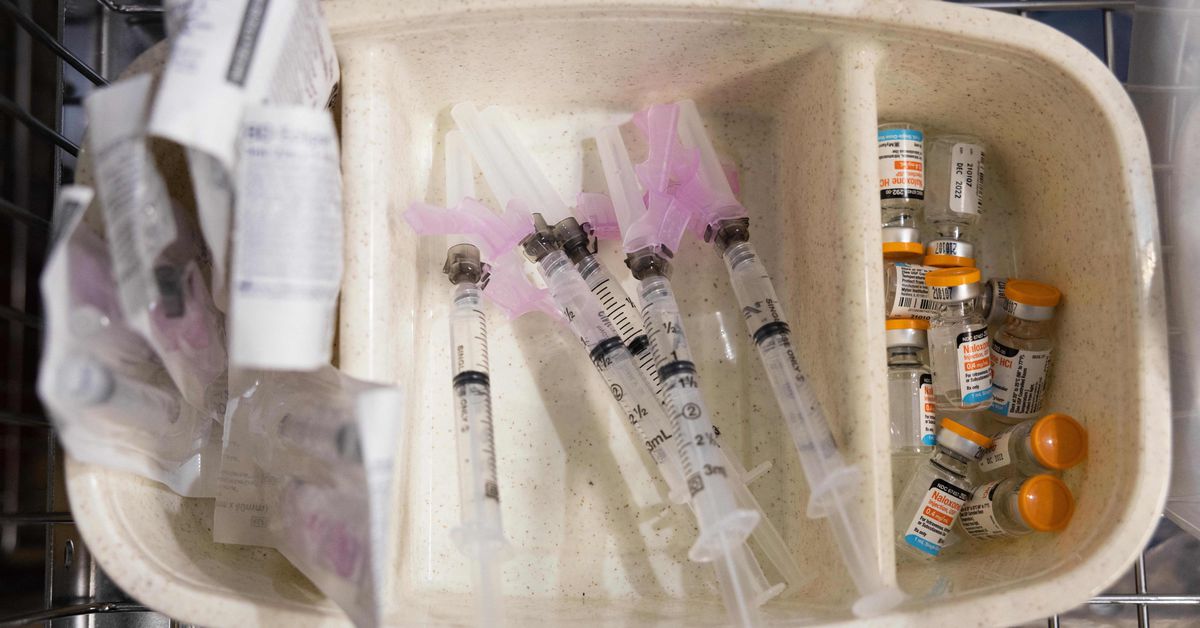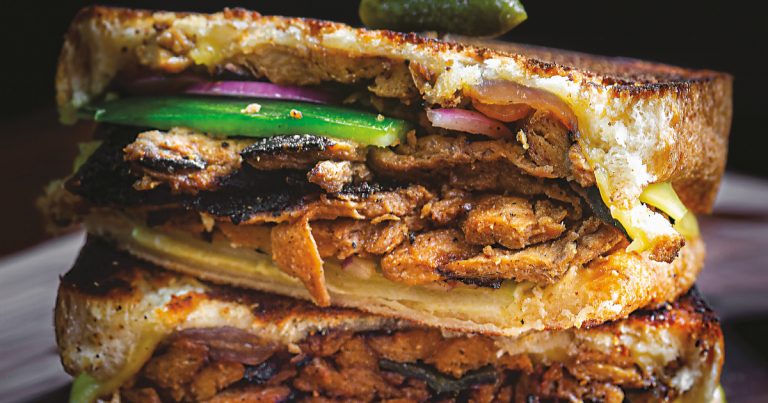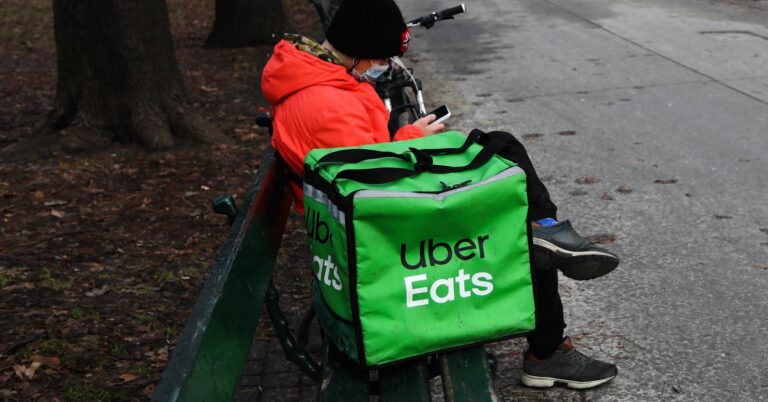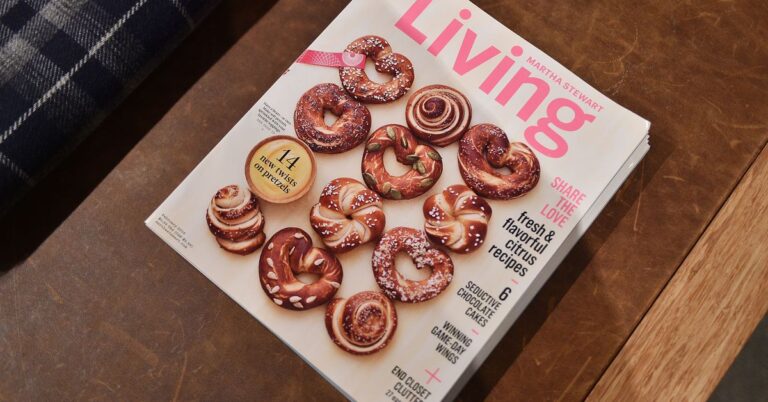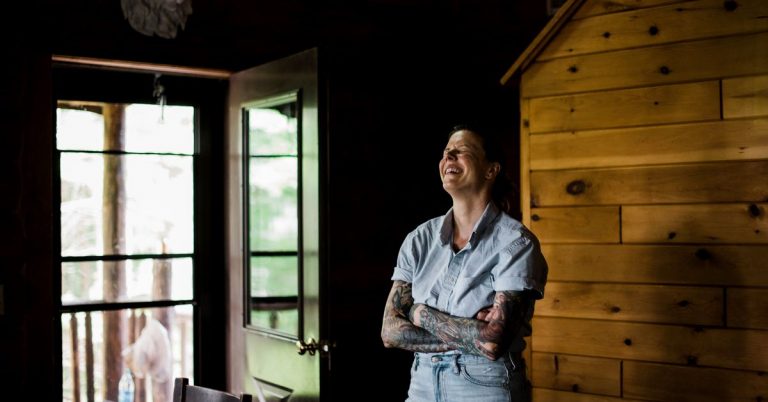Why Isn’t There an Overdose Kit Stocked Behind Every Bar in Portland?
When bar crawling down SE Morrison, weaving through places like Dig a Pony and Creepy’s, you could land at Star Bar, a red-and-orange-hued watering hole complete with pinball machines and photos of famous 20th-century rockers on the walls. Here, you can order a drink and also pull a fentanyl test kit from a small clear bowl on the counter. Stuck to the cap, a QR code on a sticker directs visitors to a site with instructions on how to test. Along the side of the jar, text reads, “Test your drugs anonymously.” In other parts of the country like Oakland or Brooklyn, a jar of test strips on a bar counter might be more common; in Portland, it’s almost unheard of.
Between October 2020 and October 2021, there were more than 100,000 deaths related to drug overdoses in the United States, according to the Centers for Disease Control and Prevention; in Oregon, drug overdose deaths shot up more than 35 percent in that same time period. Between 2019 and 2020, fentanyl-related deaths more than doubled in Oregon, and they are continuing to rise. Drug use and even overdoses are things people encounter everywhere — within families, in news stories, and, in the case of some food service workers, on the job.
In response to rising overdose deaths around the country, some food service workers have introduced harm reduction tools to their staff and first aid kits, from naloxone (often known by its brand name, Narcan), an opioid reversal medication used in the event of an overdose, to fentanyl test strips, used to identify traces of fentanyl in drugs like cocaine. In cities like Philadelphia and San Francisco, bartenders have started keeping naloxone behind the counter; New York City council members have introduced a bill that would require health officials to provide naloxone, with training, to bars and nightclubs.
Finding Narcan behind the counter at a Portland bar would be far more difficult. While the city is home to a number of organizations that provide harm reduction training and services — including the Multnomah County Harm Reduction Clinic and Outside In — business owners in Portland haven’t had the same focus on harm reduction. A nonprofit coming to Portland later this year wants to change that, and it’s starting with Star Bar.
FentCheck, a Bay Area-based nonprofit, supplies bars, restaurants, shops, tattoo parlors, and cafes with free fentanyl test strips for customers; people looking for those test strips can find a map of locations with those test strips on the website. FentCheck is now available in cities around the country, including Reno and Philadelphia, supplying businesses with fish bowls full of fentanyl test strips to keep on the counter in their businesses.
“We modeled it after the condoms in fish bowls used in the ’90s to reduce the spread of AIDS,” says FentCheck co-founder Dean Shold. “Our goal has been to normalize and destigmatize testing your drugs.”
While FentCheck will arrive in Portland more significantly later this year, Star Bar in Southeast Portland has already started providing customers with the nonprofit’s fentanyl test strips. Owner Josh Davis connected with the organization through a mutual friend, who happened to own the first business to distribute test strips through FentCheck. But Davis hopes that the story doesn’t become about Star Bar being an anomaly — he wants to see more industry workers around the city more actively supporting harm reduction in their bars and restaurants.
“It’s not condoning or advocating for drug use,” Davis says. “I want people to be safe … It’s a tool, so people can make more informed decisions.”
When Davis connected with Shold, the FentCheck co-founder requested that the bar keep Narcan behind the bar as well. To get naloxone or Narcan in Oregon, you don’t need a doctor’s prescription, but you need to be able to demonstrate a basic understanding of drug overdose prevention — how to identify an overdose, and how to administer naloxone. Davis initially reached out to Haven Wheelock, injection drug users health services (IDUHS) program coordinator at Outside In, to learn more about accessing and using naloxone. The call was a surprise to Wheelock, who, in her years working in harm reduction, had yet to supply a business owner with naloxone; Davis was also the first person to ask her about fentanyl test strips.
“Anyone who is concerned that they could witness an overdose should keep naloxone on hand,” Wheelock says. “I think of it as a fire extinguisher. It should be at a place where anyone is consuming substances — including alcohol.”
What surprised both Davis and Shold was how difficult it was to get a hold of Narcan and naloxone in Oregon — not because of the supply, but because of the price. County-run needle exchanges and organizations keep naloxone available for those who are regularly using drugs or at risk of overdose, but their funding is limited, and naloxone — in particular, Narcan — is expensive: The price of injectable naloxone varies significantly based on insurance plans, ranging from $20 to $150; Narcan, a nasal spray, can be higher, climbing toward $150 or $200. Julie Lukesh and Ben Biamont, who run the Multnomah County Harm Reduction Clinic, say they’ve noticed more people who are not currently using drugs seeking out Narcan and test strips for others in the community — which they generally see as exciting. But with the current population of active users and the current funding setup, supplying anyone who asks with free Narcan can be difficult.
“At the Harm Reduction Clinic, we have the funding to support people who are using drugs. If it’s someone who isn’t using drugs but wants to keep it on hand, people should go through their own pharmacies,” Biamont says. “Our needle exchange might not be the first place to go.”
That being said, the Harm Reduction Clinic does offer programs that might be helpful for those in the restaurant industry interested in developing harm reduction skills. Each quarter, tri-county drug and alcohol counselors offer “Train-the-Trainer” seminars, which give community members a crash course in addressing overdoses. Those who complete the training can then purchase discounted naloxone from Multnomah County pharmacies. Harm reduction advocates like Wheelock see these trainings as particularly crucial in this community, as overdoses skyrocket.
“While we all hope that there’s never a medical emergency in our space, being prepared for a medical emergency is something we should always be thinking about,” Wheelock says. “Being prepared and being trained is all very helpful. In order to keep your customers safe but also for the well-being of your staff. Responding to an overdose, as someone who has done it, is very scary.”
Accessing fentanyl test strips in Oregon, by comparison, is easier: Test strips usually cost around $1 to $2 each, available at the Harm Reduction Clinic and online through organizations like DanceSafe. However, outside of clear harm reduction organizations and spaces, they’re not as easy to spot — which is where FentCheck comes in. Shold specifically wanted to get fentanyl test strips in “places where recreational users may go,” like restaurants, art spaces, and bars, to try to access populations who may not be familiar with drug testing — and may be at a higher risk of overdose.
“A population that’s really been missed are populations that are housed, that are partying, that are casually using, but the drugs out there are not safe to be casual about,” Lukesh says. “As we’re coming out of COVID, people are going crazy, but the scene that you’re coming into has changed tremendously. Starting with bars is probably a wonderful idea.”
Relying exclusively on fentanyl test strips for harm reduction, however, gives several drug and alcohol counselors pause: There’s the possibility that someone may incorrectly test, or that a drug may have other contaminants that could cause overdose or health complications. Biamont says anyone using drugs, in any capacity, should keep naloxone on hand and know how to administer it. But as drug overdoses rise around the city, state, and country, a variety of harm reduction tools in third spaces — like bars and restaurants — could be crucial in saving lives moving forward.
“We are, again, in a devastating health crisis right now, and we need all hands on deck,” Wheelock says. “Anyone who is willing to help people, you know, not die, I support that entirely.”
